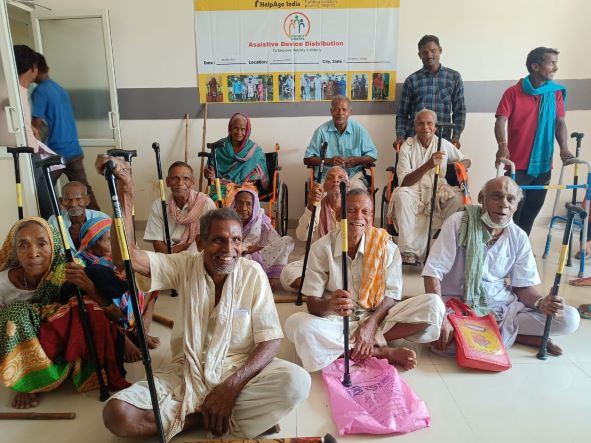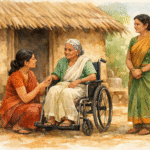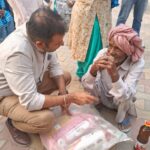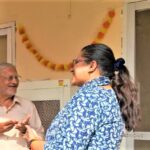Ageing is an inevitable part of life, and it often brings with it an increased likelihood of experiencing disability, both physical and cognitive. According to UNDESA, more than 46 percent of individuals aged 60 and above have disabilities, with over 250 million older people experiencing moderate to severe disability worldwide. Persons with disabilities face numerous challenges, including accessibility barriers, discrimination, limited job opportunities, and as age advances, these hurdles become more complex.
A longer lifespan is associated with a higher prevalence of chronic diseases and impairments. Thanks to advancements in technology and healthcare, many persons with disabilities now live longer, and the majority of this population comprises older persons.
In India, the Longitudinal Ageing Study of India (LASI) Wave 1 reported that 10.5 percent of individuals aged 60 and above have at least one physical or mental impairment. These impairments range from locomotor, mental, visual, hearing, to speech impairments. Additionally, 23.8 percent of older persons in India have at least one Activity of Daily Limitation (ADL), 43.8 percent have at least one Instrumental Activity of Daily Limitation (IADL), and 10.1 percent use assistive devices for physical disabilities.
This year, HelpAge India has been exploring the intersectionality of age with various factors, including gender and disability. HelpAge India launched a research report titled “Women & Ageing: Invisible or Empowered?” to shed light on the vulnerabilities experienced by older women. Women who are older and disabled face heightened vulnerability, particularly regarding mental impairments. Disparities in healthcare access, education, and caregiving responsibilities throughout a woman’s life compound these complexities, making them more susceptible to disabilities in older age.
In terms of policy and legal frameworks, India has the National Policy on Older Persons (NPOP) 1999, which aims to ensure the welfare and well-being of older individuals. While not explicitly mentioning older persons with disabilities, the NPOP addresses the unique challenges, emphasizing social inclusion, economic security, healthcare, and accessible infrastructure of all older persons.
The Rights of Persons with Disabilities (RPWD) Act, 2016, is the critical legislation that promotes the full participation and inclusion of persons with disabilities in all aspects of life. However, it falls short in addressing the specific challenges faced by older persons with disabilities. The Act lacks explicit provisions for older individuals, doesn’t sufficiently cover age-related disabilities, and doesn’t address the unique accessibility needs of older people. Moreover, it doesn’t outline targeted programs for older persons with disabilities.
There is an urgent need for greater inclusivity in policies, systems, and community activities, especially concerning older persons with disabilities. As our population ages, the intersection of age and disability becomes increasingly significant. To ensure their well-being and full participation in society, it is crucial that policies and systems consider the unique needs of this demographic group. This involves creating age-inclusive policies that address age-related disabilities, enhancing healthcare services tailored to older persons, and promoting community activities that foster social engagement and support networks, and technology that can develop assistive technologies, enhance accessibility, and create innovative solutions that promote independence and quality of life. Highlighting their active participation in various aspects of society, from education and employment to hobbies and community involvement, can help break down stereotypes and foster a culture of respect and inclusion for older individuals with disabilities. By taking proactive steps to include and empower older persons with disabilities, we can build a more inclusive and compassionate society that values the contributions and dignity of all its members.
HelpAge India is organising a webinar on December 1st, marking ‘International Day of Disabled Persons’ (Dec.3, 2024), from 10 am to 5 pm, which seeks to understand and analyse the challenges, perceptions, solutions and underlying opportunities with regards to disabilities and older persons in India. Webinar link: https://www.youtube.com/watch?v=VVScsh4FPa8
This article has been written by:
Amal M.
Research Associate
Policy, Research and Advocacy






